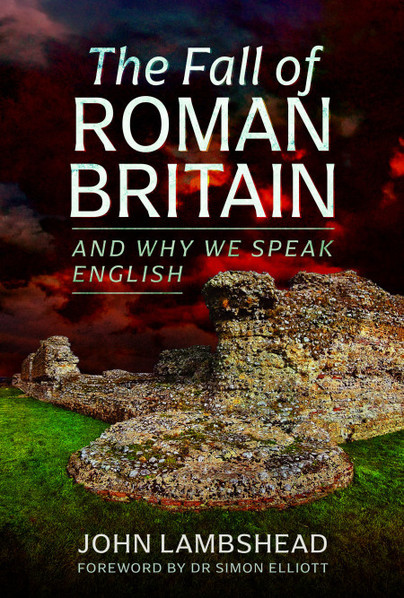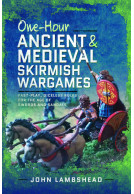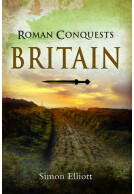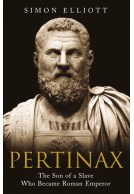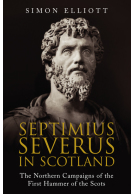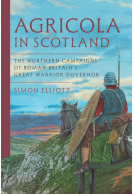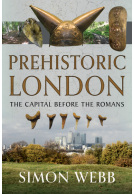The Fall of Roman Britain (eBook)
and Why We Speak English
Imprint: Pen & Sword History
File Size: 1.1 MB (.epub)
Pages: 192
ISBN: 9781399075572
Published: 11th May 2022
| Other formats available - Buy the Hardback and get the eBook for £1.99! | Price |
|---|---|
| The Fall of Roman Britain Hardback Add to Basket | £20.00 |
The end of empire in the island of Great Britain was both more abrupt and more complete than in any of the other European Roman provinces. When the fog clears and Britain re-enters the historical record, it is, unlike other former European provinces of the Western Empire, dominated by a new culture that speaks a language that is neither Roman nor indigenous British Brythonic and with a pagan religion that owes nothing to Romanitas or native British practices.
Other ex-Roman provinces of the Western Empire in Europe showed two consistent features conspicuously absent from the lowlands of Britain: the dominant language was derived from the local Vulgar Latin and the dominant religion was a Christianity that looked towards Rome. This leads naturally to the question: ‘what was different about Britannia?’ A further anomaly in our understanding lies in the significant dating mismatch between historical and archaeological data of the Germanic migrations, and the latest genetic evidence. The answer to England’s unique early history may lie in resolving this paradox.
John Lambshead summarizes the latest data gathered by historians, archaeologists, climatologists and biologists and synthesizes it all into a fresh new explanation.
I cross the worlds of history and science, and have often seen how evidence from one field of research can complement the study of the other. The author intentionally put the two together in the search for answers in this book.
GoodReads, John Galluzzo
We know that the Roman Empire occupied England for 400 years. Why, then, he asks, do the British not speak a romantic language? There are historical narratives to which we can point, of post-Roman invasions by Saxons and Danes, etc., but why did not even a modicum of Vulgar Latin survive? He digs deeper, into stories involving class relations (was there ever a Roman Emperor - or even a Roman military general of any renown - from Great Britain? was it because the Brythonic-speaking people were seen as a lower class than the Romans and they were never accepted into the family?) and more.
What I truly love about this book is the imagery the author paints with the background of climate data (and this book is heavy on genealogical, climate and archaeological data, showing how history should be read from much more than just the written and architectural records). He pinpoints climactic disturbances and aligns them with military movements, how, say, the Picts might suddenly move southward in search of food after a drought. My mind, as an American reader, went to Snowy Owls irrupting across the United States, leaving the tundra when Lemming populations crash after their seed crops fail. While Snowy Owls movements might not lead to territorial wars (rather than on individual patches), the Picts suddenly foraging through Roman-held lands certainly would. The author's point is that sometimes it's the animal in us, the biological pushes, that make history happen.
He details the fall of Roman Britain quite thoroughly, and what a mess it was, as the Romans simply couldn't live with each other and society turned into a series of claims to the throne, usurpations, assassinations, lather, rinse, repeat. So we know why, and when, they left. But what of the language? He turns to Iceland for an example that supports his point, and in the end it's quite convincing.
As someone with a long interest in this period of history any book trying to give an intelligent and reasoned argument as to what happened and why things happened in the way they did is very welcome. Firstly this book goes deeper than just archaeology and written accounts; it looks also at climate and natural disasters and their knock on effects on the Roman Empire and subsequently Britain. All of it well argued.
Amazon Customer, Richie
I've come across some different theories as to why we speak English and not a Latin based language; from the Saxon 'conquest' being long and drawn out conflict rather than a quick take over by the elite as was the Norman conquest, to claims that the native British always had the upper hand and simply chose to speak a Germanic language as it was in their interests even though there were hardly any Saxons in Britain.
Lambshead's theory however makes complete sense and appears to fit the facts and modern thinking, i.e. that there was no Saxon invasion, rather a slow migration and that these migrants were entering a vacuum, it wasn't a fight against an established state or society. Mr Lambshead puts it far better than me!
The book has fresh ideas and is well argued and researched. Thoroughly recommended.
5 out of 5
Amazon Customer, Carol
Anyone with an interest in the Roman occupation of Britain will enjoy this book. It is very well researched and I would opine it could be part of an historical or archaeological reading list for students. The author knows his stuff and this compilation of essays relating to the Romans, Angles, Saxes and Jutes not forgetting the eponymous Vikings, is comprehensive and astutely selected. I really enjoyed the Fall of Roman Britain and John Lambshead does an excellent job of rescuing the text from being dry and academic. My thanks to Netgalley and the publishers for an ARC of this book. We'll done.
Rating: 5 out of 5 stars
NetGalley, Lional Jones
I enjoyed reading this book covering the fall of Roman Britain.it has been well researched covering all aspects of the Roman decline in Britain. I would recommend this book to anyone who is interested in Roman history particularly dealing with there downfall.
This was an intriguing book - well written and with clear presentation - which is a multidisciplinary masterpiece, addressing a fascinating and often overlooked period in British history.
Crowvus Book Blog
Read the full review here
This book carefully guides its reader through the fall of Roman Britain, so carefully and expertly that you barely notice the centuries whiz pass as you turn each page eagerly wanting to learn more about the events unfolding.
History with Jackson
Throughout this narrative, Lamsbhead also introduces the various influences on Roman Britain, and how they were shaping Britain's cultural landscape.
Despite the centuries whizzing past, Lambshead is still able to convey the strength of the Roman Empire, the tenacity of many Emporers' attempts to keep hold of its distant island colony, and the importance of Britain to the Empire.
Read the full review here
I found the writing interesting and easy to read. This is a work of popular science and history, and covers an extensive period. It has to, because in order to understand why Roman Britain ended the way it did, you have to understand how it started and what happened in between. Including the climate, geological events, epidemics, social changes in Rome and the entire empire.
Everything is Better with Dragons
Read the full review here
The story is tied up in a convincing narrative at the end of the book, along with a bibliography and a timeline of events, using the dates generally accepted to be correct. John Lambshead, like all the best historians, has a command of his subject so, whilst complex in parts, his book is rigorously researched, always engrossing and easy to read.
Kid Ferrous Reviews
Read the full review here
Whether you're an expert on the Roman Empire or someone like me who wants to learn more, you will find this book incredibly fascinating. John Lambshead provides a fresh perspective on the fall of Roman Britain and how it evolved in the way that it did.
Looking Back at History
Read the full review here
A book I would definitely recommend if you are interested in this subject.
I Heart Books
Read the full review here
It's packed with knowledge and interpretations from the author and explores, as I mentioned, topics that were not at the forefront of what I'd learned already about Roman Britain.
Love British History
Definitely a thumbs up from me, and it'll be a book I'll return to again.
Read the full review here
An absolutely fascinating read from cover to cover, "The Fall of Roman Britain: and Why We Speak English" will have a very special appeal to readers with an interest in the evolution of the English language, Roman history, and Medieval British history. Featuring a four page Time Line, and a seven page Bibliography, "The Fall of Roman Britain: and Why We Speak English" is original and exceptionally well written, organized and presented study that is highly recommended for community, college, and university library collections.
Midwest Book Review
Read the full review here
As featured in
British Archaeology
Brilliant piece of popular scholarship synthesising science and history - This is a really good work of popular history and science, bringing together scholarship from ancient history and modern population genetics, in an accessible form. And it makes sense of the some of the things in the conventional account of the history of Britain that have always been a bit hazy...in particular how did Roman and post-Roman Britain turn into Anglo-Saxon England? I won't attempt to summarize the argument here, but I found it convincing and well stated. I learned lots about the history of the Roman Empire too, even though I've read stuff in that area before. I can't recommend this strongly enough.
Amazon customer, Jezza
Rating: 5 stars
Amazon Customer, Richie
As someone with a long interest in this period of history any book trying to give an intelligent and reasoned argument as to what happened and why things happened in the way they did is very welcome. Firstly this book goes deeper than just archaeology and written accounts; it looks also at climate and natural disasters and their knock on effects on the Roman Empire and subsequently Britain. All of it well argued.
I've come across some different theories as to why we speak English and not a Latin based language; from the Saxon 'conquest' being long and drawn out conflict rather than a quick take over by the elite as was the Norman conquest, to claims that the native British always had the upper hand and simply chose to speak a Germanic language as it was in their interests even though there were hardly any Saxons in Britain.
Lambshead's theory however makes complete sense and appears to fit the facts and modern thinking, i.e. that there was no Saxon invasion, rather a slow migration and that these migrants were entering a vacuum, it wasn't a fight against an established state or society. Mr Lambshead puts it far better than me!
The book has fresh ideas and is well argued and researched. Thoroughly recommended.
The question "what was different about Britain!" is one that has puzzled historians for centuries. John Lambshead offers many intriguing and thought-provoking solutions to this amazing riddle in a terrific examination of the latest evidence and theories. One for Time Team and Digging for Britain fans, certainly.
Books Monthly
"It is an interesting and stimulating read."
Norfolk Family History Society - 'The Ancestor' magazine
"The 400 years when Britannia was occupied by the Romans is investigated in depth in a new book, The Fall of Roman Britain by Kent author John Lambshead who thoughtfully supplies a time line that includes the arrival of the Claudian invasion in AD 43 and continues to AD 409...The book, building on this history, explains why those living in Britannia ended up speaking a completely different language. The secondary titles of the book gives a clue to this interesting but complex issue.: "Why we speak English.""
Terry Sutton
As featured in the article: 'The really boring reason we all speak English'
Medway Messenger
This book about the Romans leaving Britain looks at the situation through a number of questions or essays such as the molecular make-up of Roman Britain, why we speak English, the book looks at the science of people or populations moving around, societies and how they evolve. I found the book to be a fascinating one in what it hoped to find and what it would claim to have found. I won’t really say much more as some of the answers being revealed would ruin the book. Some of the conclusions the book comes to might not be surprising and anyone educated to a decent level could have probably worked them out. If you love this period of time I would certainly recommend the book, even if you were a beginner or an archeologist.
The History Fella
Read the full review here
I would recommend this book to history scholars and amateur enthusiasts alike — not only those with an interest in Roman Britain, but also those with an interest in the physical/life/earth sciences who would enjoy learning more about the scientific analysis behind historical claims. Certain chapters would even be valuable resources for secondary school students conducting in-depth studies of different aspects contributing to the end of the Roman Empire in Britain.
NetGalley, Leela Chandra
Rating: 5 out of 5 stars
NetGalley, Elizabeth McLaughlin
This book is a series of essays that set out to answer 1) why Britannia was so comprehensively ruined, 2) why molecular data does not correlate with archaeological data in regards to Saxon migrations, 3) why Britain speaks English, not an offshoot of Latin.
I'd say that a basic understanding of Roman history is helpful when reading this book, if only because otherwise the sheer number of Emperor's listed could get overwhelming. That said, I do not have a lot of in depth knowledge about Rome, and I still found Lambshead writing to be perfectly comprehensible.
The Fall of Roman Britain covers a time period that I haven't often seen covered in books, with other scholars often focusing on how the Norman invasion of 1066 changed the social and political climate of Britain. This book, instead, discussions how the happenings of the continental empire affected the isolated local populations and Roman transplants, and why the two seem to have (mostly) kept to themselves.
I'd recommend this for anyone who is interested in British or Roman history.
About John Lambshead
Dr John Lambshead designed the award-winning computer game, Frederick Forsythe’s Fourth Protocol, which was the first icon-driven game, was editor of Games & Puzzles and Wargames News, and has written a number of wargaming rules and game supplements for Games Workshop, Warlord Games and Osprey. He was co-author, with Rick Priestley, of Tabletop Wargames, A Designer and Writer’s Handbook (2016) and author of the highly successful One-hour Skirmish Wargames (2018), both published by Pen & Sword Books. When not designing games, he writes popular science and historical articles and books and has written SF&F novels and short stories for Bane Books and other publishers. He lives in Rainham, Kent.
About Simon Elliott
Dr Simon Elliott is an award winning and best selling archaeologist, historian and broadcaster with a PhD in Classics and Archaeology from the University of Kent where he is now an Honorary Research Fellow. He has an MA in Archaeology from UCL and an MA in War Studies from KCL. Simon is widely published with numerous works in print on various themes relating to the ancient world, with a particular focus on the Roman military, and he makes frequent appearances on TV as a Roman expert. Simon lectures widely to universities, local history societies and archaeological groups, is co-Director of a Roman villa excavation, a Trustee of the Council for British Archaeology and an Ambassador for Museum of London Archaeology. He is also a Guide Lecturer for Andante Travels and President of the Society of Ancients.







